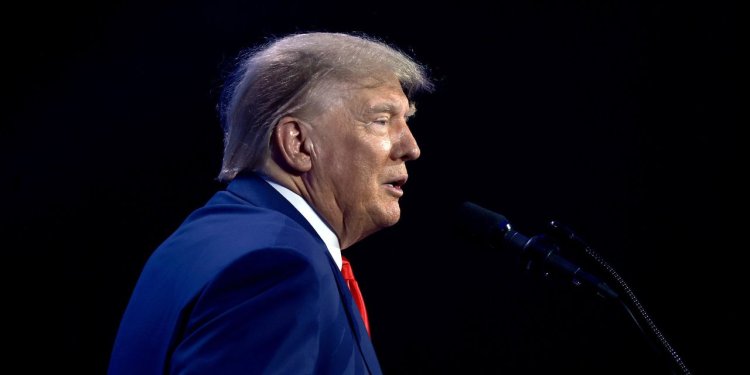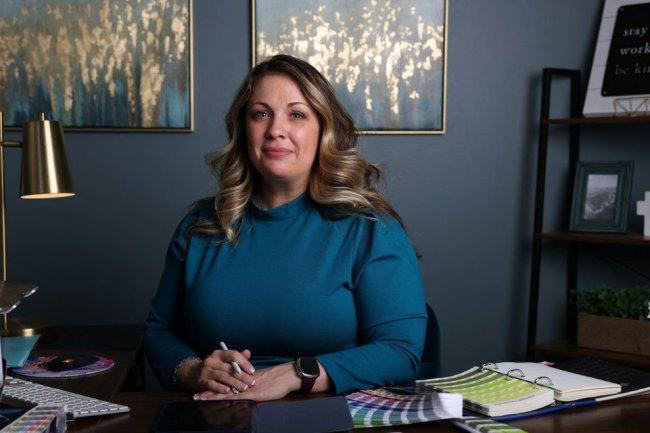Trump’s Lawyers Are Back in Court in the Documents Case. Here’s What Happened.
All eyes were on Judge Aileen Cannon at her first hearing in the unprecedented criminal case Donald Trump was charged with 37 counts in the investigation into his handling of classified documents. Photo Illustration: Xingpei Shen By Jan Wolfe and Sadie Gurman Updated July 18, 2023 6:51 pm ET FORT PIERCE, FLA.—The first pretrial hearing in the federal prosecution of former President Donald Trump on charges of breaching the Espionage Act took place on Tuesday before U.S. District Judge Aileen Cannon

Donald Trump was charged with 37 counts in the investigation into his handling of classified documents. Photo Illustration: Xingpei Shen
FORT PIERCE, FLA.—The first pretrial hearing in the federal prosecution of former President Donald Trump on charges of breaching the Espionage Act took place on Tuesday before U.S. District Judge Aileen Cannon. Trump didn’t attend the hearing but Walt Nauta, his valet who is charged alongside him, was present in the courtroom.
Here are some highlights from Tuesday’s hearing in Fort Pierce, Fla.
Did Cannon tip her hand on how she sees the case?
Cannon didn’t delve into the merits of the case and Trump’s potential defenses. But on the key question of the day—when should a trial be held?—she expressed skepticism about the Justice Department’s proposed date of Dec. 11.
Cannon repeatedly noted the sheer amount of potential evidence and the need for Trump and Nauta’s lawyers to adequately review it.
She asked prosecutor Jay Bratt for examples of an Espionage Act prosecution that proceeded to trial within six to eight months of an indictment. After Bratt cited a case in Virginia with a similar time frame, the judge responded: “That was a four-count case involving a very small number of documents.”
At one point, the judge criticized the Justice Department for its handling of a motion filed on Monday for a protective order related to how confidential documents should be handled. Under local rules, prosecutors must “meaningfully confer” with defense lawyers before filing such motions.

Aileen Cannon, seen at a virtual nomination hearing in 2020, was confirmed to the federal bench days after Donald Trump lost his re-election bid that year.
Photo: U.S. Senate/Associated Press
In Monday’s motion, the Justice Department said it had tried to arrange a phone call with Trump’s lawyers on Friday or over the weekend but didn’t manage to agree on a time.
Cannon told prosecutors to refile their motion later, saying they should have engaged in more attempts at dialogue. “You tried to confer on a Friday before sending something due on a Monday,” the judge said. “That seems a bit rushed.”
That view was based in part on how Cannon presided last year over a lawsuit the former president brought objecting to the Federal Bureau of Investigation’s August 2022 search of Mar-a-Lago. She issued several rulings in Trump’s favor, including appointing an outside arbiter to review whether documents seized from Mar-a-Lago fell under client-attorney or presidential privileges and should be kept from the view of investigators. An appeals-court panel later overturned her decision and disbanded the review process, saying there was no justification for treating Trump differently from any other target of a search warrant.
Cannon, who has been a judge for just over three years, could rule on efforts by Trump’s lawyers to dismiss charges. And she will act as a gatekeeper for the trial, ruling ahead of the proceeding on what evidence and testimony the two sides present to jurors.
“She needs the public to know that she is going to be fair,” said John Fishwick, who served as the U.S. attorney for the Western District of Virginia during the Obama administration. “It’s important for her to be active and engaged. If she is passive and quiet, people are going to be concerned that the moment is too big for her.”
Did Cannon set a trial date?
No, but she said she plans to “promptly” issue a written decision on the case’s scheduling.
While Cannon seemed skeptical of the Justice Department’s proposed trial date, she also had some questions for Trump’s lawyers. At one point, she pressed them for a concrete timetable of how long it would take them to review evidence, saying it was incumbent on them to offer her more specifics than they provided in a brief filed last week.
In that document, Trump’s lawyers asked the judge to consider Trump’s busy schedule, how a trial would affect his run for president, and the risk of media attention tainting the jury pool. Ultimately the defense requested that the trial not begin until mid-November of 2024, after the presidential election.

Donald Trump’s lawyers have indicated they would seek to make public as much sensitive evidence as possible.
Photo: Joe Raedle/Getty Images
Judge Cannon seemed to brush aside arguments related to the election, saying her focus in setting a trial date would be on the volume of materials that needed to be digested as part of the discovery process.
“These matters often require more time given the amount of confidential information at issue,” Cannon said.
The prosecutors argued that the legal theories in the case are straightforward. Defense lawyer Todd Blanche called the suggestion “intellectually dishonest,” saying Trump’s status as a former president obviously makes the case unique.
When the judge pressed another one of Trump’s lawyers, Christopher Kise, on what novel questions the case would tackle, he zeroed in on the Presidential Records Act and how it intersects with other laws governing classified materials.
Bratt said prosecutors are prepared to “work hard” to meet the deadlines. “We acknowledge we have presented an aggressive schedule,” he said.
How much evidence will be made public?
Justice Department lawyers said discovery in the case will include 1.1 million pages of unclassified materials and nine months of closed-circuit TV footage from security cameras inside Mar-a-Lago. The prosecution argued that only certain sections were relevant; the defense argued they needed time to fully digest all of the material.
In addition to the unclassified materials, Bratt noted another 1,545 pages of classified material. He expects the defense will have access to about 80% of it with the interim security clearances they have been provided.
—Byron Tau contributed to this article.
Write to Jan Wolfe at [email protected] and Sadie Gurman at [email protected]
What's Your Reaction?













